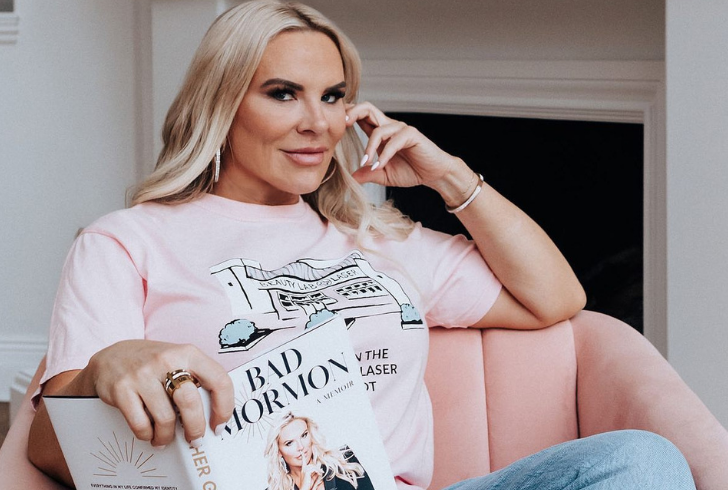Heather Gay, a captivating personality from the reality show “The Real Housewives of Salt Lake City,” has ignited a firestorm of debate with her recent revelations about weight loss, body image, and the often-murky waters of the body positivity movement.
Her journey, fraught with personal struggles, societal pressures, and a touch of self-discovery, compels us to confront the complexities of self-acceptance in a world obsessed with appearances.
A Journey of Weight Loss and External Validation
Gay’s narrative is one of battling harsh self-criticism fueled by external negativity. She candidly reveals being subjected to cruel insults like “manatee” and “Shrek,” both by the public and her co-stars. This relentless barrage created a yearning for acceptance, a desire to finally feel “seen” and valued.

Instagram | heathergay | Gay’s story involves overcoming intense self-criticism fueled by external negativity.
This yearning, coupled with witnessing the positive transformations of her peers who used Ozempic, a medication primarily prescribed for type 2 diabetes but increasingly popular for off-label weight loss, ultimately led her to choose the same path.
The Quest for Inner Peace
However, Gay’s decision wasn’t solely driven by a personal desire for weight loss. She acknowledges the undeniable “pressure” she felt to conform to the seemingly shrinking world around her. Witnessing her friends shed weight and garner praise triggered a fear of falling behind, of being ostracized and judged.
This underlying pressure, fueled by the competitive nature of reality television and societal expectations surrounding appearance, adds a layer of nuance to the story, exposing the invisible forces that can sway our choices.
The Price of External Validation

Instagram | heathergay | After shedding pounds, Gay felt a surge of external validation.
While Gay experienced a surge of external validation after losing weight, it came with a bittersweet sting. The compliments and newfound appreciation from her peers, while initially gratifying, exposed a harsh truth: her value, at least in some circles, seemed contingent on her physical appearance. This realization, as Gay poignantly expresses, felt “sad” and highlighted the shallowness of a society that equates worth with outward aesthetics.
Future Generations
Perhaps the most crucial aspect of Gay’s story lies in her concerns as a mother. As she navigates the complexities of body positivity with her daughters, she grapples with the conflicting messages society throws at women. On the one hand, she wants to empower them to embrace their inner strength and self-worth, regardless of their size.
On the other hand, she recognizes the undeniable reality that appearance can, unfortunately, play a significant role in how individuals are perceived and treated. This internal conflict, beautifully articulated by Gay, underscores the multifaceted nature of body image and the delicate balance needed to foster healthy self-esteem in the next generation.
A More Holistic Approach to Body Positivity

Instagram | heathergay | After shedding pounds, Gay felt a surge of external validation
Heather Gay’s story, while unique in its context, sheds light on the multifaceted nature of body image and the challenges associated with achieving true self-acceptance. It is crucial to recognize that the body positivity movement, while advocating for self-love and acceptance, doesn’t dismiss the very real challenges individuals face due to their appearance.
This movement seeks to dismantle the harmful societal narratives that equate self-worth with physical attributes and empower individuals to find their inherent value within.
Gay’s journey, with its raw vulnerability and candid introspection, serves as a springboard for a more nuanced conversation about body image. It encourages us to move beyond the simplistic narrative of “love yourself unconditionally” and acknowledge the societal forces that shape our self-perception.
Ultimately, achieving true self-acceptance requires navigating this complex landscape, fostering internal validation, and rejecting the notion that our worth is defined by the size of a label.





